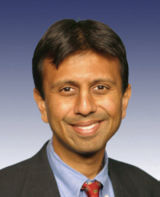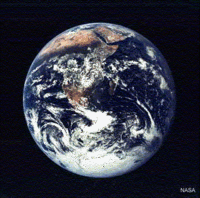To truly transform our economy, protect our security, and save our planet from the ravages of climate change, we need to ultimately make clean, renewable energy the profitable kind of energy.
So I ask this Congress to send me legislation that places a market-based cap on carbon pollution and drives the production of more renewable energy in America.
And to support that innovation, we will invest fifteen billion dollars a year to develop technologies like wind power and solar power; advanced biofuels, clean coal, and more fuel-efficient cars and trucks built right here in America.
He has a plan. It's tied to reducing hydrocarbon emissions. He did mention "clean coal" but he also (for the first time) advocated a cap-and-trade system to cap emissions, which could easily kill current coal plants in short order.
He even gave it the right priority. First. He said in his speech he would concentrate on three key challenges — energy, health and education. Energy first. That's not an accident, it's a priority.
The only thing he did not do was use the word "war."
This was a mistake.
Because the President did not call us to a "War Against Oil" last night, the nattering classes were allowed to ignore his whole call. I saw a CNN report on the speech this morning saying he talked about "the economy, health and education." Energy was lumped under the economy, when in fact it had its own, higher-priority section.
Another important point. This whole policy is a partisan divide. In his remarks Gov. Jindal talked about energy only in terms of its price, urging more oil production. This is big. It means the Republican Party – which still holds a lot of power and a lot of support – is still "isolationist" in terms of this struggle. If conservation keeps oil prices low Republicans would be happy to destroy the planet to pull out whatever hydrocarbons are left.
When you use the word "war" things change. I know it's loaded. We've been in a "state of war" with "radical Islam" for nearly 8 years now. We have, in fact, been on a war footing since December 7, 1941. We don't know any other way to be.
But there is a difference between our normal "war" footing and being a "nation at war." We were made to feel "at war" from 9-11 onwards. This was the excuse for extraordinary renditions, for torture, for violations of every right or civil liberty you could name. As time passed Americans saw the "boy cried wolf" aspect to all this and withdrew. We no longer feel ourselves at war (although we are). We see talk of "war" as holding behind it the gloved fist of repression. Democrats in particular resent it.
Yet we need that call, and we need it now.
What is at stake in the current struggle with hydrocarbons is nothing less than the fate of the planet. Scientists may claim there could be thousands of Earth-like planets in our galaxy, but Einstein says there are none we can really get to, and no one from there has shown up on the White House lawn to show it's possible to violate relativity. This is the only planet we have.
Once the ice caps melt this planet will burn to a cinder in very short order. It takes 80 calories to melt a gram of ice and turn it to water. Apply another 80 degrees and you get 112 degree water — you're just 100 degrees from it boiling away.
The ice caps are the shock absorbers of this ecosystem. Once they're gone you're on the knife edge.
Time, in other words, is of the essence.
To survive we have to move completely away from hydrocarbons, and very, very quickly. The President's program starts us on that path by setting current carbon emissions as a maximum, so we can work downward. It's not everything, but it's a very, very important something.
This small step can easily be worn away, politically, without the word "war" and the urgency of that word to back it up. This it the lesson of the last 24 hours.
It's a lesson we need to heed. As one madman said recently, "Are you listening, Mr. Obama?"













In addition to the ice caps, we have lots and lots of really cold ocean water. However, once that starts to warm, the frozen methane in those deep ocean waters could become a danger.
http://en.wikipedia.org/wiki/Clathrate_gun_hypothesis
In addition to the ice caps, we have lots and lots of really cold ocean water. However, once that starts to warm, the frozen methane in those deep ocean waters could become a danger.
http://en.wikipedia.org/wiki/Clathrate_gun_hypothesis